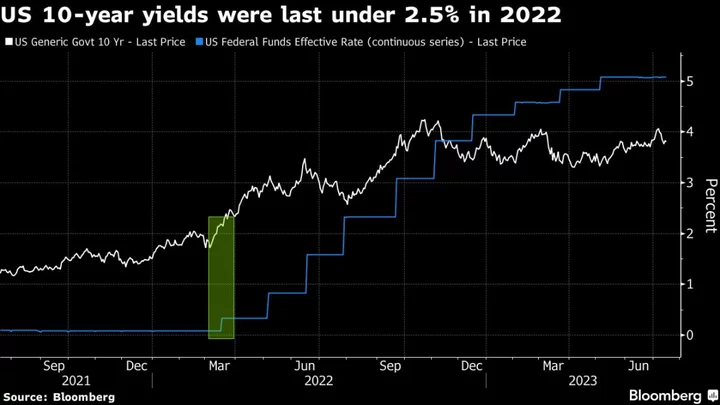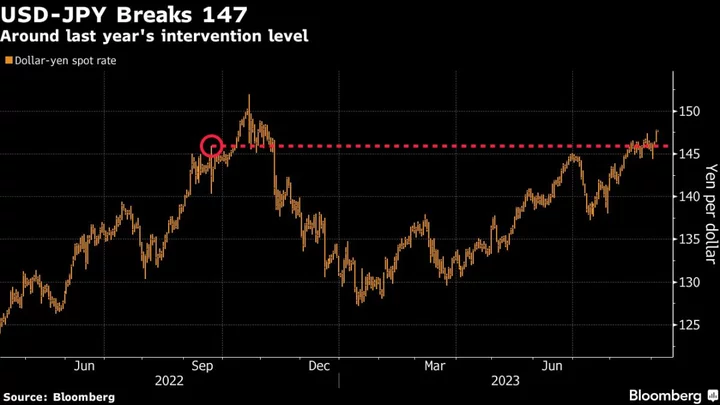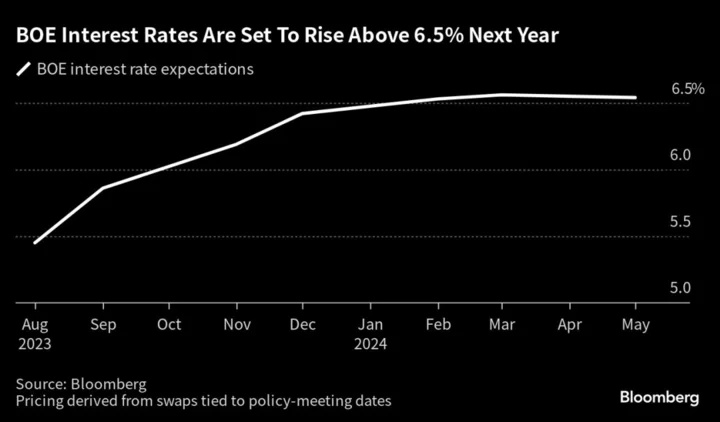Bets on long-dated Treasuries have backfired as the US economy holds firm, but payday is coming for those who are brave enough to stick to their guns.
That’s the view of Schroder Investment Management’s Sebastian Mullins who says that signs of weakness are emerging in the US economy despite the recent string of positive data. He’s scooping up bonds from Australia and Europe while looking for an entry point to buy longer- maturity Treasuries.
“You have this money illusion because things cost more, people are spending more. But in real terms, things are falling behind,” said Mullins, who is the Australian Head of Multi-Asset at Schroders. “We’re starting to see some small cracks in the labor market, but the consumer is pretty much the key to whether or not the US rolls over. So we’re watching that pretty tightly.”
The wager on long-dated Treasuries is a precarious one as robust retail spending and a resilient jobs market suggest that the US economy remains on a solid footing. The Federal Reserve has also signaled an openness to further rate hikes, raising the stakes for those who are betting policy makers will be forced to start easing next year.
Mullins co-manages two portfolios out of Sydney at Schroders, which oversees A$5 billion ($3.2 billion) in multi-asset strategies in Australia.
He is not alone in predicting that the world’s largest economy is headed for a hard landing. Jupiter Asset Management and Vantage Point Asset Management are of the same mind and recent moves in the US bond market underscore this view.
Yields on 30-year Treasuries have soared about 40 basis points in August to around 4.40%, the highest since October. Robust economic data, a heavy supply pipeline and Fitch Ratings’ move to cut its US credit ranking have fueled the upward pressure.
“Looking at things today, you probably would be wanting to buy more duration in the portfolio with that view of recession,” said Mullins.
He is also keeping cash on hand to buy an approaching dip in equity markets, but is currently utilizing options to manage macro risk and volatility in shares — where he sees range trading as a more viable strategy.









